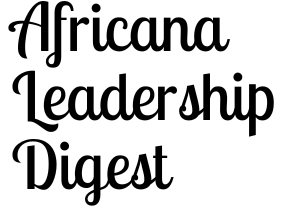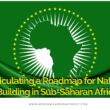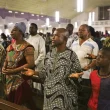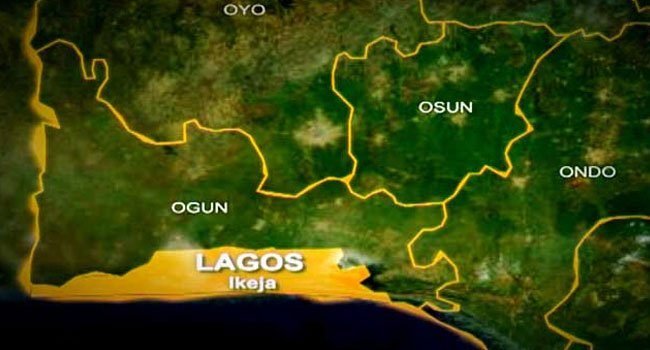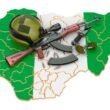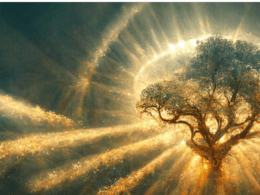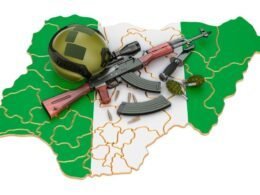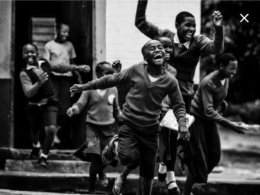Introduction
A recent survey tries to find out how vital “religion” is to people in the Sub-Saharan part of Africa; the survey reveals that nearly nine out of ten Sub-Saharan Africans attest that religion plays a very active role in their lives. The clear message that this kind of survey is communicating is how pervasive religious beliefs and practices are to the Africans’ existential reality.
Jacob Olupona expresses a similar view by stating that
African spiritual experience is one in which the “divine” or the “sacred.” realm interpenetrates into the daily experience of the human person so much that religion, culture, and society are imperatively interrelated. The significance of this interaction is that there is no clear-cut distinction between religious and secular spheres or perspectives of the ordinary life experience.
The implication of this is better illustrated by Kwanbena Asamoah-Gyandu, who observes that Pentecostalism as a movement is the fastest-growing stream of Christianity in the world today. An astronomic growth attributed to the domestication of local and indigenous cultures, which allows it to thrive. It is no longer surprising that Pentecostalism is massively reshaping the face of the global religious landscape in the twenty-first century. This global reality is against the backdrop of the widespread propagation of the theory of the “death of God” in modern society by Dietrich Bonhoeffer, especially during the last month of his life. Bonhoeffer foresaw the hiddenness of God and the coming of a “post-religious” age in human history, a prediction he had erroneously proclaimed, based on the socio-political context of Berlin in the 1960s, as a worldwide yardstick for the imminent maturation of secularization.
But unexpectedly, the massive global shift of the center of gravity of Christianity, from Euro-America to the global south, with Pentecostalism leading the orchestration of this shift, now calls for a new interpretation of the role of religion in our contemporary society. Pentecostalism and the resurgence of many traditional spirituality across all faiths have nullified the theory of secularization of the global space void of religiosity. Asamoah-Gyadu, recalls, in one of his articles, that in Africa, for instance, “the precursors of Pentecostalism were indigenous prophet figures, many of whom were persecuted out of historic mission denominations for pursuing spiritualities sometimes scandalously perceived by church authority as belonging to the occult.” He observes that some early Ethiopianists confronted many Africans to stop patronizing their local and traditional deities for protection and security. The reason for this is because they believed that the God of the Bible, who alone has the authentic power to rescue humankind, is a more reliable alternative succor that could deliver their adherents from the fear of witches, spell, and enchantment.
After the Ethiopian movement, were the prophets (Aladura or Zionists and Roho churches) known in the theological parlance as “African Independent” or “African Initiated Churches” (AICs). They emphasized the presence of the Holy Spirit, which they considered has already been put to sleep in the mainline churches. They proclaimed healing a significant vehicle to demonstrate and propagate the reality and validity of the gospel. A distinctive feature of their spiritual exorcism is the unconventional therapeutic methods that strongly lean towards the traditional healing approach, which many critics consider unchristian. This, of course, has led to some contending the credibility of the older AICs as Pentecostal. However, we must note, with interest, that the emphasis on healing and their worldviews of mystical causality in etiology and diagnosis is very much similar with many African Pentecostal ministries today.
The African worldview of mystical causation is highly pervasive today in the practice of healing and deliverance. No small thanks to the perceived incompetency of the mainline churches’ theologies, doctrines, and creedal emphasis. The Pentecostals have proven to be more credible by taking the African worldview so seriously, considering the questions that their adherents are agitating in their mind. A renowned Ghanaian Pentecostal Pastor Mensa Otabil aptly summed up this brand of the gospel in one word “relevance.”
African Pentecostalism has proven relevant in responding to the challenging questions in the African mind. The movement has changed the face of African Christianity. It is likely, to continue to do in their ever-changing form, which underscores their viability in a context where religion and life constitute inseparable entities. Therefore, in a nutshell, my central thesis in this essay is that African Pentecostalism is growing significantly in the Southwestern part of Nigeria. Its virtues are being exported to other nations of the world. One factor responsible for the astronomical rise in the movement is the worldviews and spirituality of its proponent. What I intend to do in this essay is to illustrate how these worldviews and spirituality helped shape and influence the rapid rise among the Southwestern people of Nigeria. The South-West of Nigeria reflects a fair diversity of the Nigerian populace, but the Yoruba people mostly populate the region in question.
Christianity, Islam, and Traditional Religions are considered the dominant religions in the region because they each attract considerable large followership. Though Islam and Christianity are classified as revealed or divine religions, the third is deemed traditional and believed to be indigenous to the Africans in terms of cultural orientation.
The Gospel of Relevance: African Worldviews, Cosmos, Mythology, and Philosophy
Afe Adogame once remarked that “one main thrust of African Pentecostal religiosity is the preponderance of deliverance and spiritual warfare rituals in their cosmological tradition.” This observation is significant when considering how much traditional worldviews have been imported into Pentecostal spirituality. In this section, I will be discussing the relevance of the Pentecostal gospel messages, which take cognizance of the African worldviews, cosmogony, mythology, and philosophy. Olupona observes that “the integration of religion into all aspects of daily life poses a sharp contrast to the church-state dichotomy upheld in Euro-American societies.” He states that “African religious worldviews permeate economic and politics on the continent, where the sacred and secular realms influence one another.” He argues that the separation of church and state has become an arduous task, a theoretical and academic exercise that ends in futility. In the context of African traditional religions, such separation is practically impossible because religious beliefs overlap with every aspect of life. This includes the time of birth, death, marriage, family life, diet, health care, personal spending and savings of money, interpersonal relationships with friends and neighbors, and societal governance. On many occasions, African worldviews and cosmology perfectly resonate with the biblical worldviews.
A typical example is the adaptation of Moses’ and Joshua’s theophanic encounters, where God told them to put off their shoes because they were on holy ground (Ex. 3:5, Josh. 5:15. Based on this biblical precedence, churches, such as the Cherubim and Seraphim, do not wear shoes in church. In the same manner, we can infer that this was also a carry-over practice from the African traditional religious practice. It is common in traditional religion for a client consulting a diviner not to wear shoes to the shrine when they patronize the oracle.
In the Acts of the Apostles, the Bible records that extraordinary miracles were performed, by Paul, through certain mediums, like the aprons and handkerchief. Jesus, during His earthly ministry, also sent forth his apostles to preach and heal all manner of sickness and diseases by the anointing oil. Pentecostal preachers have adopted a similar worldview, which entirely resonates with the African worldview. In the African traditional religion, a medicine man can instruct his client to use particular charms provided through a medium, like “ifunpa,” “bante,” special medicine rings, etc., for protection and security. Pentecostal pastors utilize these following mediums too, to perform exorcism in the life of their church members – anointing oil, mantles (white handkerchiefs), prayer rods, anointed coats, anointed traditional regalia (agbada), bread and wine, the blood of sprinkling, blessed water (holy water), feet washing, etc.
Take Winners Chapel, a ministry presided over by David Oyedepo; for example, the bishop likes to describe some of these practices as apostolic doctrines entrusted to his church for triumph in the earthly kingdom. He writes, in Mandates (an administrative policy book) that “these we fondly call “Rods” – referring to some of the different mediums mentioned above. The reason why he calls them “rods” was because of Moses, who was called on a special mission to deliver his people Israel, from Egypt by using a rod (Ex. 5, 20).
African Mythology and Philosophy
Geoffrey Parrinder opines that “most myths tell how something came to exist, man, the world, certain animals, social affair. The myths make a ‘sacred’ history of the people. Myths are stories that produce fertile imagination, sometimes simple, often containing profound truth. They are not meant to be taken too literally”. Many African myths of creation correspond with the book of Genesis creation account, particularly the creation myth of the Yoruba people, which recognizes the role of the Supreme God in the creation of man. This myth strongly emphasized the belief in a Supreme Being; Parrinder affirms that the Supreme Being is considered the creator of all things. He argues that belief in a Supreme Being is thoroughly an African conception long before the invasion, of Islam and Christianity, in the interior regions of Sub-Sahara Africa.
He argues further that Africans have some philosophical thoughts like every race of humankind. He reveals that they consider some great questions in their mind that borders on the meaning of life, death, and its conquest. To explain life and human activities as they understand them, the Africans usually express their thoughts in proverbs and myths. He writes that “it is a world-affirming philosophy, in which life on earth is thought of as good, despite human suffering. Sex is to be enjoyed, and children are the gift of God”. Parrinder concludes that few African people have been without belief in the Supreme Creator and suggests that where Islam or Christianity has influenced such belief, the original conceptual understanding of God is still very much retained. This is not to say that African Pentecostalism did not benefit from any outside influence by only locating the development of the movement to its African root. Ogbu Kalu argues, for instance, that African Pentecostalism does not ignore the role of a variety of missionary influences. He opines that the actual position was that the early classical Pentecostal groups only came to Africa on the invitation of the indigenous Christians and didn’t make any significant impact in the formative years.
African Pentecostalism a Short Narrative
In this section, I will be making a summary of Ogbu Kalu’s book, “African Pentecostalism An Introduction. To begin with, Kalu observes that African Pentecostalism has often been regarded among scholars as an extension and off-shore efforts of the American variant of Pentecostalism. The continued ascendancy of the North American story in the historiography of the movement has completely obscured the true tale of the global rise of Pentecostalism, particularly in the global south. Kalu circumvents the popular tale by retelling the story to illustrate Africans’ odyssey for power and identity through religion.
He revisited the debate on Pentecostalism’s genealogy/origins and development by weaving the African story into the global western historiography. He connected the origin/development of African Pentecostalism to the dreams of Ethiopianists. He argues that “African Pentecostalism emerged from African Indigenous religious and cultural responses to the gospel message.” Kalu, in his book, does not proclaim any break in the widespread religiosity of the Africans; instead, he demonstrated that contemporary African Pentecostalism is closely linked to the religious effervescence of the indigenous fore-bearer. Kalu, principally, utilizes four explanatory discourse methods: the historical, cultural, Instrumentalist, and religious methodology, to drive home his point about the authenticity of the origin of African Pentecostalism.
He connected the origin of the movement to the preceding charismatic glare of the African Instituted Churches (AICs) Prophet. In doing so, he was able to situate the cultural fit of the Pentecostal movement to the indigenous worldviews, which, according to him, is very consistent with the cultural reality of the Africans, accounting for the explosive growth witnessed by the movement.
Kalu sketched out the Ethiopian and prophet movements’ role when the Africans first encountered the gospel message. He frowned at the usual schismatic rhetoric that is often peddled among scholars as accounting for the expansion of Pentecostalism. He wants scholars to be more logical and pragmatic in explaining growth. Instead, he would credit the rapid growth of Pentecostalism across the African continent to the perfect union of the gospel message with the African worldviews. He declared that what the Africans wanted was for the new religion to perform better, the tasks of the old indigenous religious.
Kalu does not disdain the roles of a variety of missionary influences. His priority was to show that many of the early classical Pentecostal groups came into Africa only by the indigenous Christians. He was surprised that the North American story had attempted to blow out of proportion the role of classical Pentecostals in the evangelization of Africa, even within its own indigenous black African context. Therefore, his central argument emphasized that classical Pentecostals appeared early in the African religious landscape but were modest in their success. He argues that none of the classical forms of Pentecostalism impacted in a significant way to the religious landscape in Africa until they had benefitted enormously from the spiritual renewal wave of the 1970s.
Kalu summarizes it up by saying;
Pentecostalism emerged from the indigenous response of Africans to the missionary message; the missionary input from evangelical ministries such as Scripture Union, Campus Crusade, and such from the increasing missionary forays of Pentecostals from the holiness tradition and Pentecostal denominations from various countries who utilized the labors of African agents; and from interdenominational para churches, bolstered by the educational institutions of many American Bible Colleges and many evangelical evangelistic outreaches.
When we consider what the North America global Pentecostalism narrative scholars might want to say, and other commentators may argue for an identical worldwide pattern of the charismatic renewal of 1970. Kalu responds that the events in Africa have little to do with what happened in the United States from the 1960s onward.
The additional point that Kalu continues to reiterate was African Pentecostalism could not be quickly divorced from the heroic embrace of the African worldviews, which informed its basis for being used to re-contextualize the gospel message by the Pentecostal leaders.
Kalu writes that;
Contrary to the early missionary attitude that urged rejecting indigenous African culture, Pentecostals take the African map of the Universe seriously, acknowledging that culture is both a redemptive gift as well as one capable of being hijacked. Pentecostals perceive a kindred atmosphere and resonance between the Bible and African indigenous religions. Pentecostals, therefore, explore the line of congruence that goes beyond the destruction of the old to the new construction of reality.
He recapitulates that “by turning the Bible into a canon of tribal history and weaving it into the indigenous worldview. Pentecostals directly address the problems of evil forces in numerous ways.” He maintained that “Pentecostals do not reject the past wholesale, but engage with its refashioning the history and domesticating it. They use the Bible as a resource for explaining the past and critiquing the present.”
Some scholars and some concerned members of society are worried and ask why Pentecostalism is so preoccupied with material blessing and well-being. Kalu responded by observing that “in Africa, it is obvious that the faith gospel builds on traditional preoccupation. Africa’s traditional religions were focused on material realities. He bolsters his point by pointing to what Ajayi Crowther wrote of the Yoruba religious search for “peace, health, children, and money.” This, according to him, constitutes part of the Yoruba people’s worldview, which is now well articulated by the Pentecostals in terms of the faith gospel often associated with the American health and wealth gospel message. The virtues of good work and hard work, Kalu explained, already exist within the Yoruba existential cosmogony.
Nigeria, undoubtedly a failed state as we speak, prompted these churches, especially the Pentecostals, to swing into action, with desperation to build up the already battered economy. For the most part, the Pentecostal leaders are motivated by the desire for a changed state, so they are massively reorienting their ever-expanding followers, now, perhaps, the largest in the country, to actively get involved in the socio-political terrain and create the needed change. They now emphasize their salvific role as a precursor to nation-building and are increasingly less comfortable sitting on the fence regarding national development. Whether this stance, among the Pentecostals, is authentic or not will be a matter for discussion in the nearest future.
Although most modern societies have sought to build secular societies without the intervention of religion, such aspiration has been a total failure in the Nigerian context. The current event in Nigeria has increasingly made the idea of a secular state unattainable. The African worldviews do not accommodate such a dichotomy, according to Olupona. It is not easy to decipher between a sacred and secular space in the African context; those two realms are seriously interwoven in the lived experience of the Africans. Because the Nigerian government has performed very woefully and the youth are discontented, the Pentecostals are determined to rise to the occasion. They are now riding on this extraordinary situation to perhaps restore hope to the teeming young adults most affected by the government’s irresponsibility. The Pentecostals have thus emerged to give a new life to the abandoned basic infrastructures of the society.
As I draw close to ending this essay, I wish to re-state what Ogbu Kalu, a renowned African scholar, said about contemporary African Pentecostalism. He writes that
the Overarching conceptual scheme indicated that African Pentecostalism emerged from African indigenous religious and cultural responses to the gospel message. It has been shaped by the same ideals that informed the responses of the anti-structural Ethiopianism movement, some of whose leaders exited from the missionary structures to found native African Churches. The fruits of vernacular translation of the Bible included the validation that the Spirit healed just as it did in the African religious tradition.
Pentecostals took the challenge many steps further precisely because they operated from the same premises as the radical Evangelicals among the white. They showed a healthy sense of pragmatism in utilizing the tools of modernity and have moved to reverse the flow of the missionary process because, once upon a time, African theologians shaped the doctrine, polity, liturgy, and ethics of the early Jesus movement. African scholars such as Origen, Augustine, and Tertullian were in demand throughout the Christian world. Today, African Pentecostalism is daring to recover identity through religious power.
It wouldn’t be out of place to say that there is a reverse mission in Europe and North America today by the African Evangelicals/Pentecostals. Africans are bringing their brand of Christianity across the border to these places to re-evangelize the white folks who are experiencing a rapid decline in their faith in religion altogether. Some of their historic churches are now being bought or rented by the Africans to propagate the gospel in those places.
